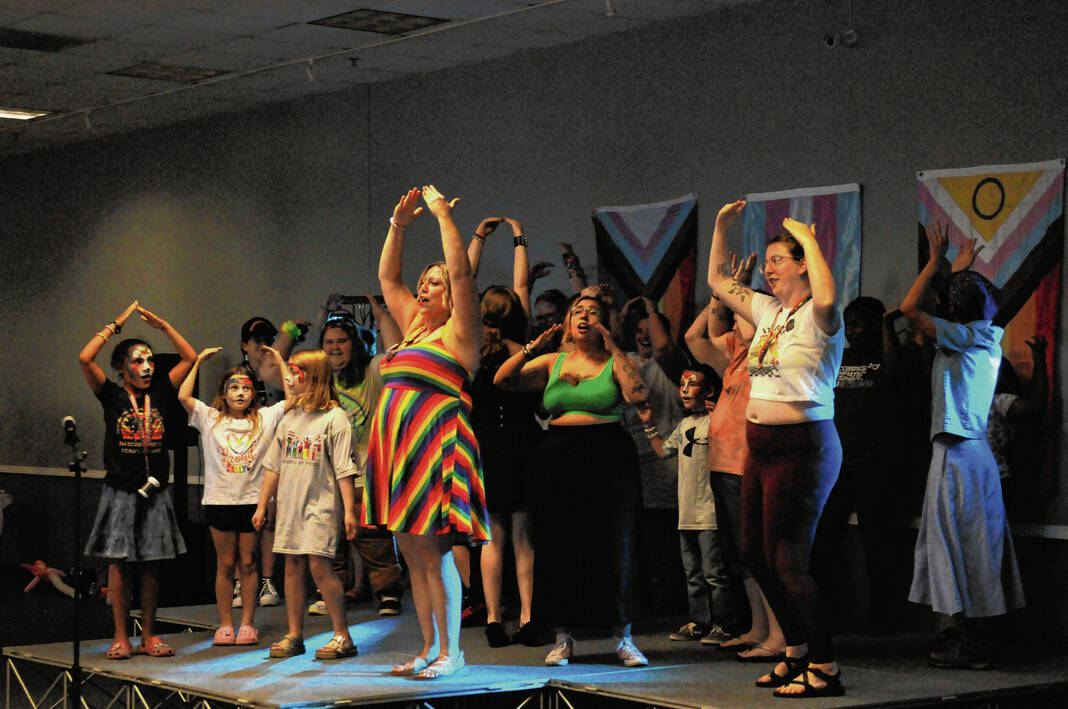
Jackson County Pride Alliance Director Katrina Ketcham-Hardwick leads attendees in dancing to Chappell Roan’s “HOT TO GO!” at Seymour Pride on Sunday.
Jared Reedy | The Tribune
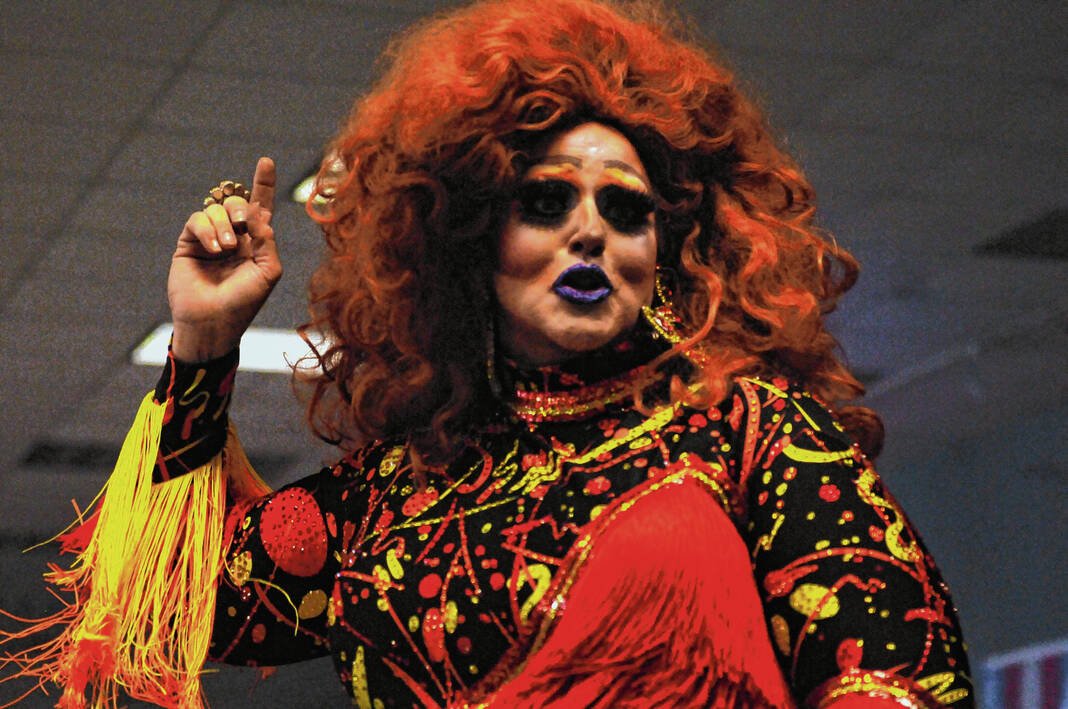
Drag performer Sierra Rain performs “Burn” by Ellie Goulding and “Burnin’ Up” by Jessie J on Sunday at Seymour Pride.
Jared Reedy | The Tribune
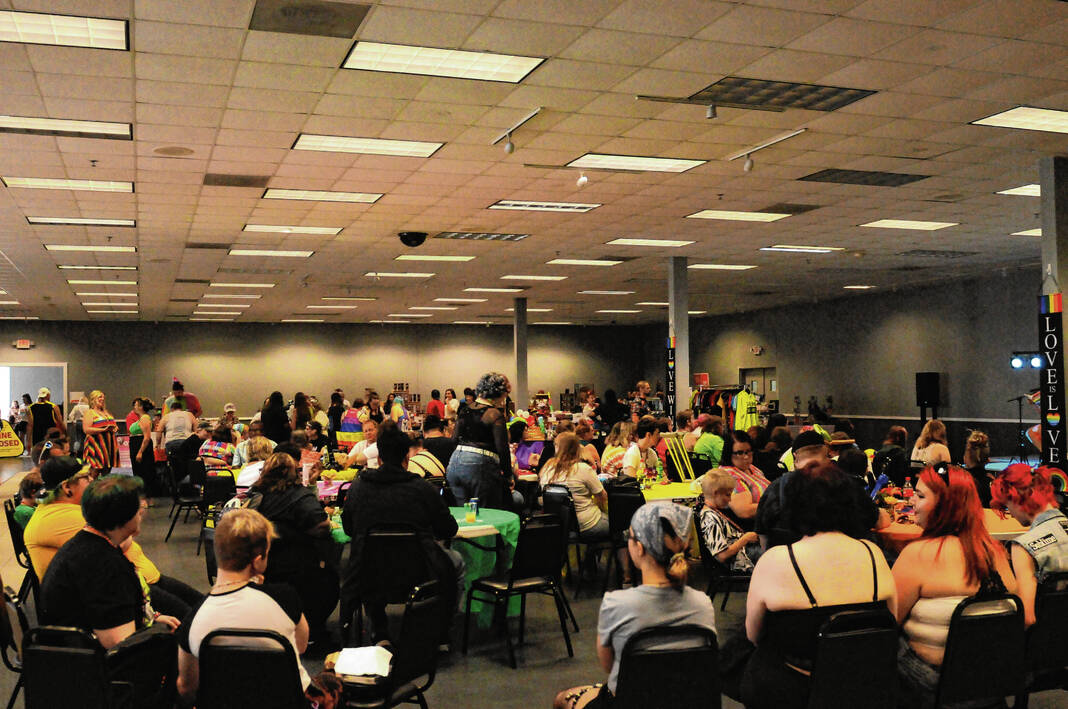
Hundreds of LGBTQIA+ individuals and allies showed their support Sunday for the community at Celebrations in Seymour.
Jared Reedy | The Tribune
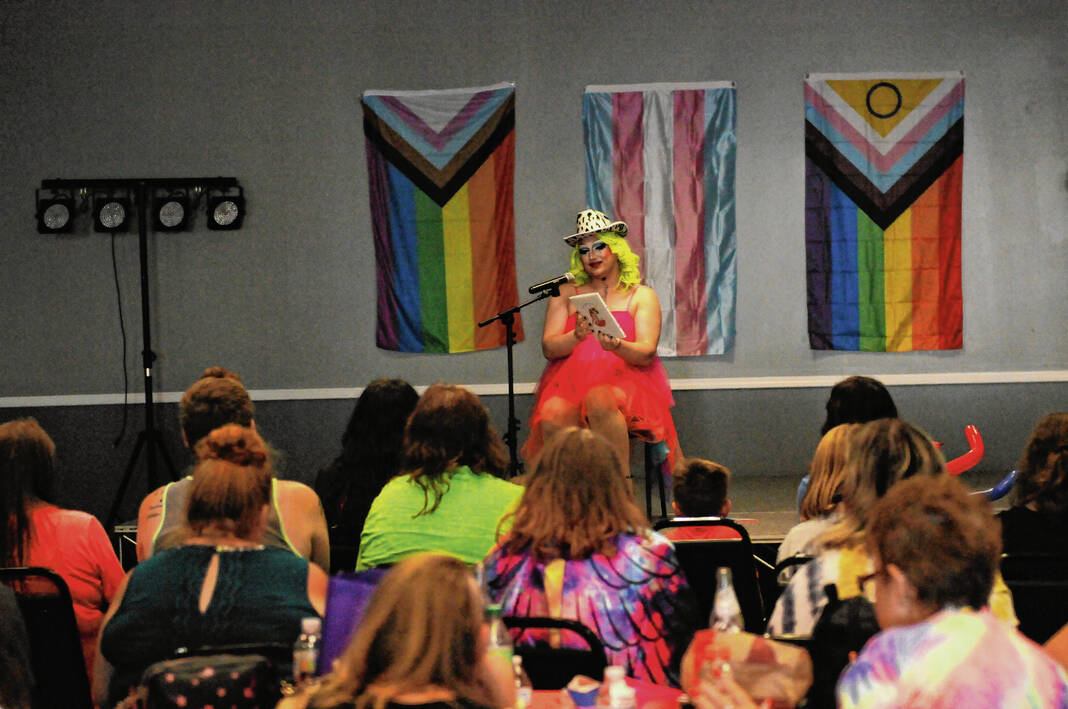
Drag performer Ilana A la Mode reads an illustrated children’s book during story time.
Jared Reedy | The Tribune
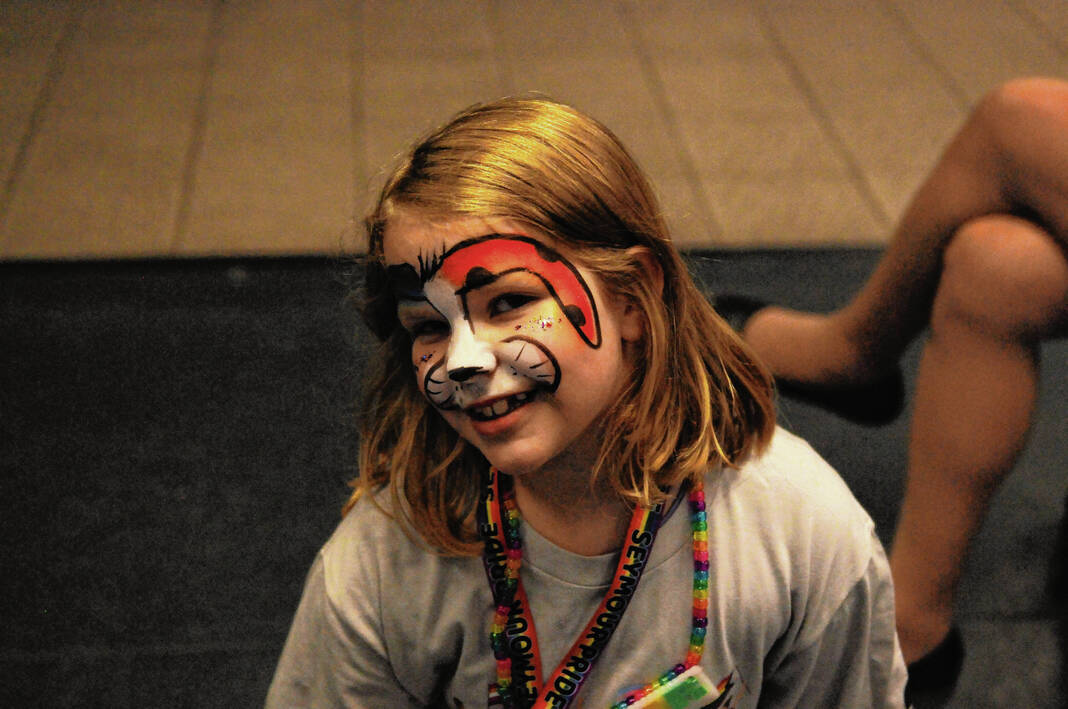
Araya Douglas, 8, proudly smiles with her face painted Sunday at Seymour Pride.
Jared Reedy | The Tribune
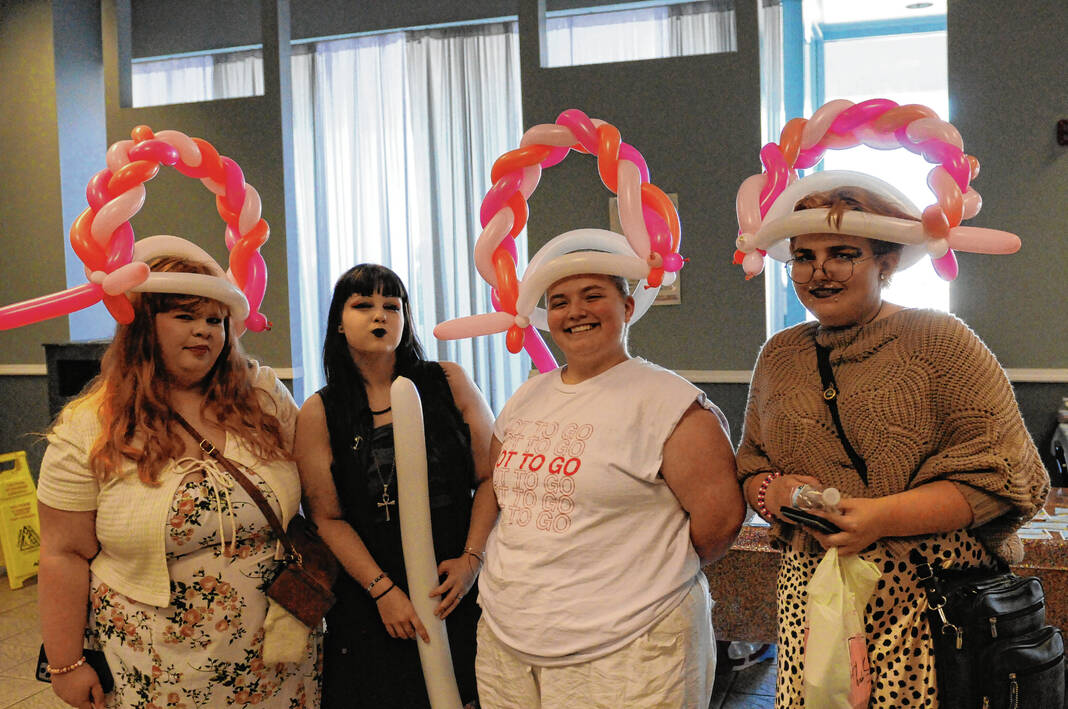
Nena Scott, Aurora Clark, Leah Hutson and Finny Maschino smile with balloon hats that feature the colors of the lesbian flag.
Jared Reedy | The Tribune
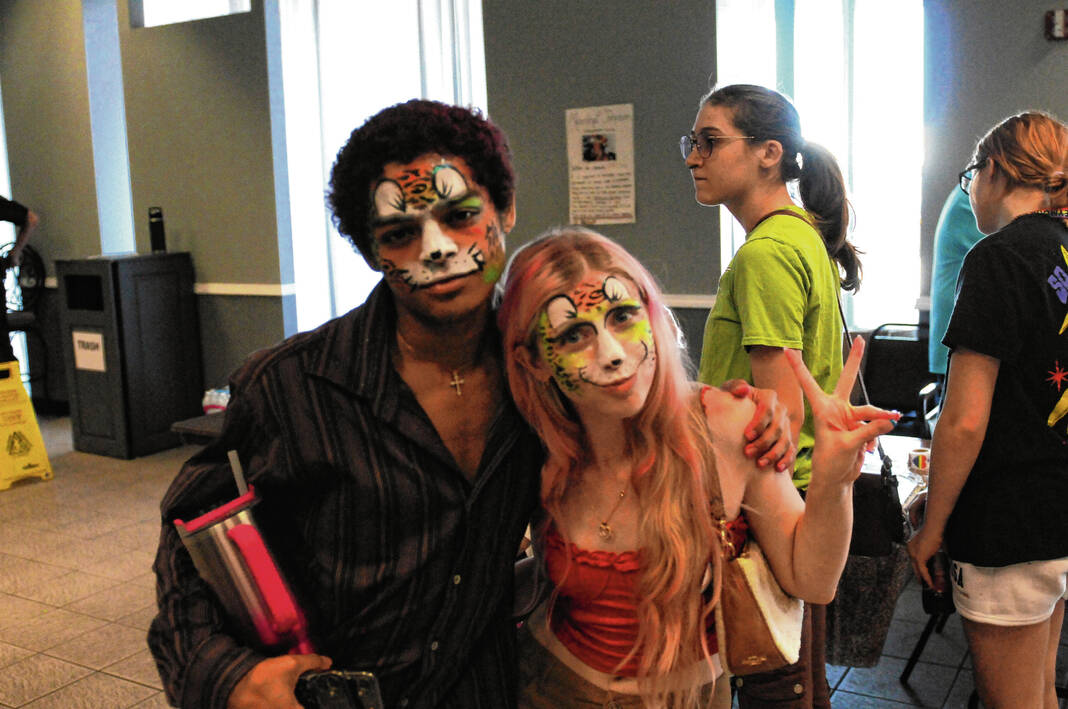
Darnell Simmons and Carlie Hammonds also got their faces painted Sunday at Seymour Pride.
Jared Reedy | The Tribune
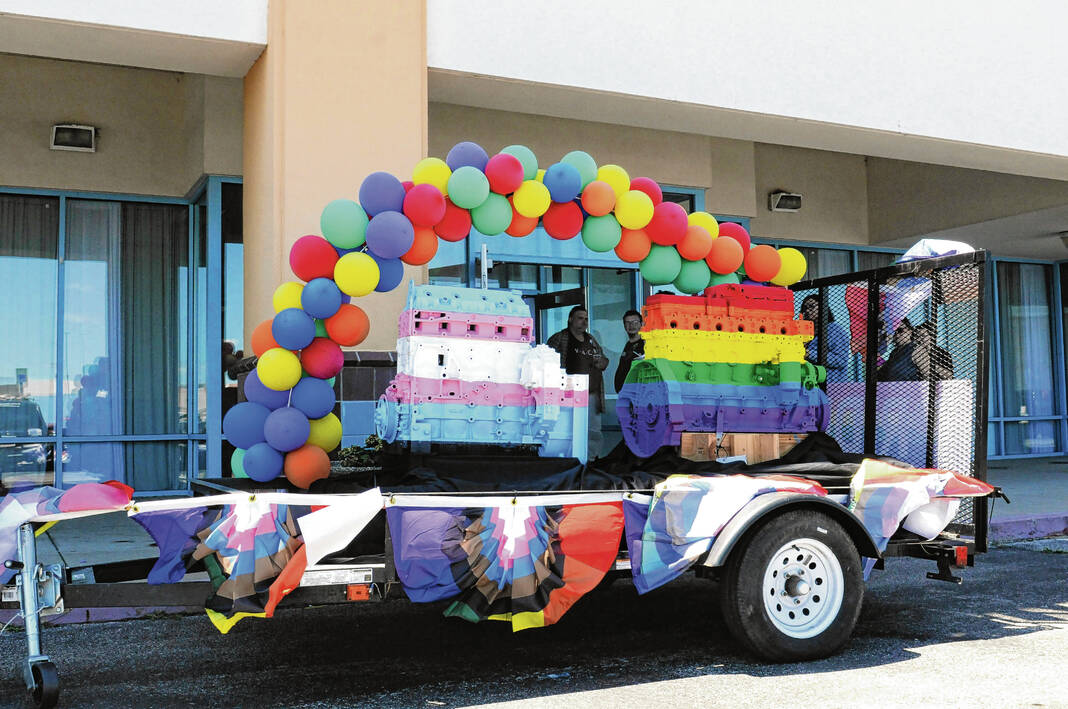
Cummins Inc.’s “pride with painted engines” on display on Sunday for the Jackson County Pride Alliance’s fourth annual Seymour Pride event.
Jared Reedy | The Tribune
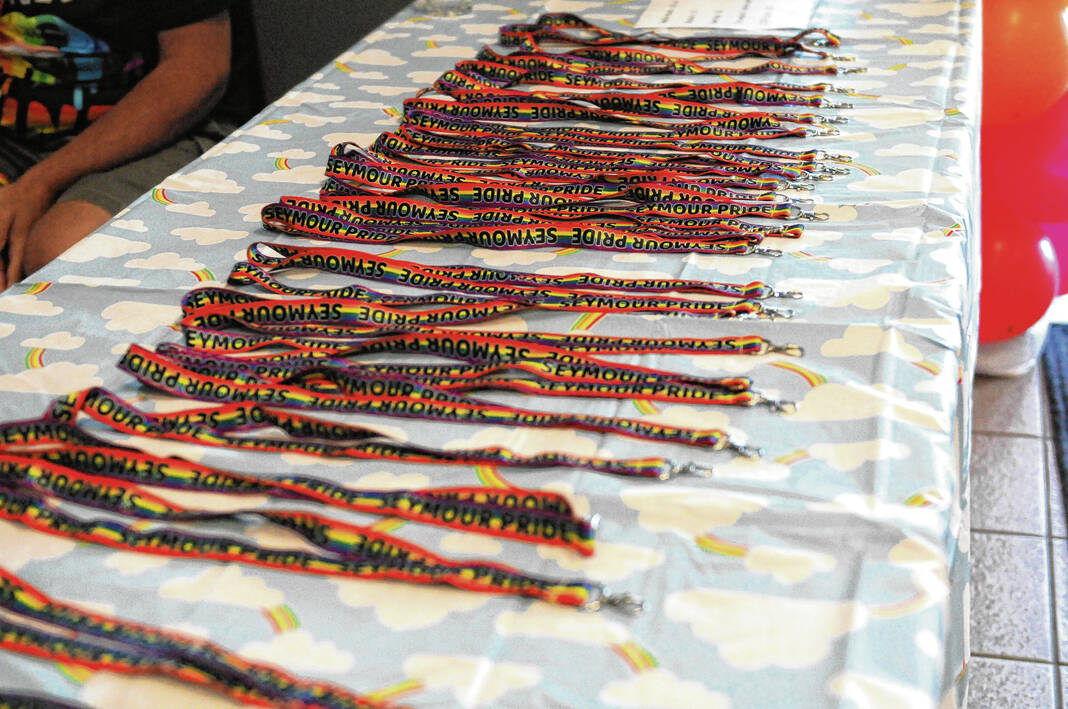
Free Seymour Pride lanyards were available Sunday for event attendees.
Jared Reedy | The Tribune
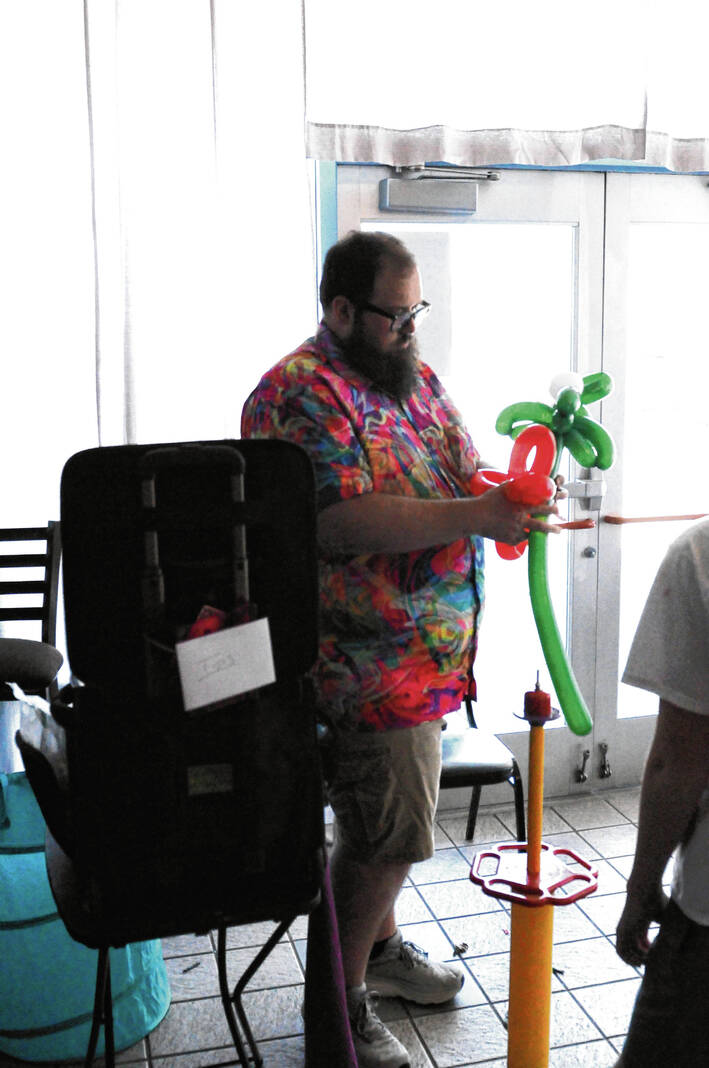
Mike Adam Shill with Big Top Indiana fashions a balloon animal at Seymour Pride.
Jared Reedy | The Tribune
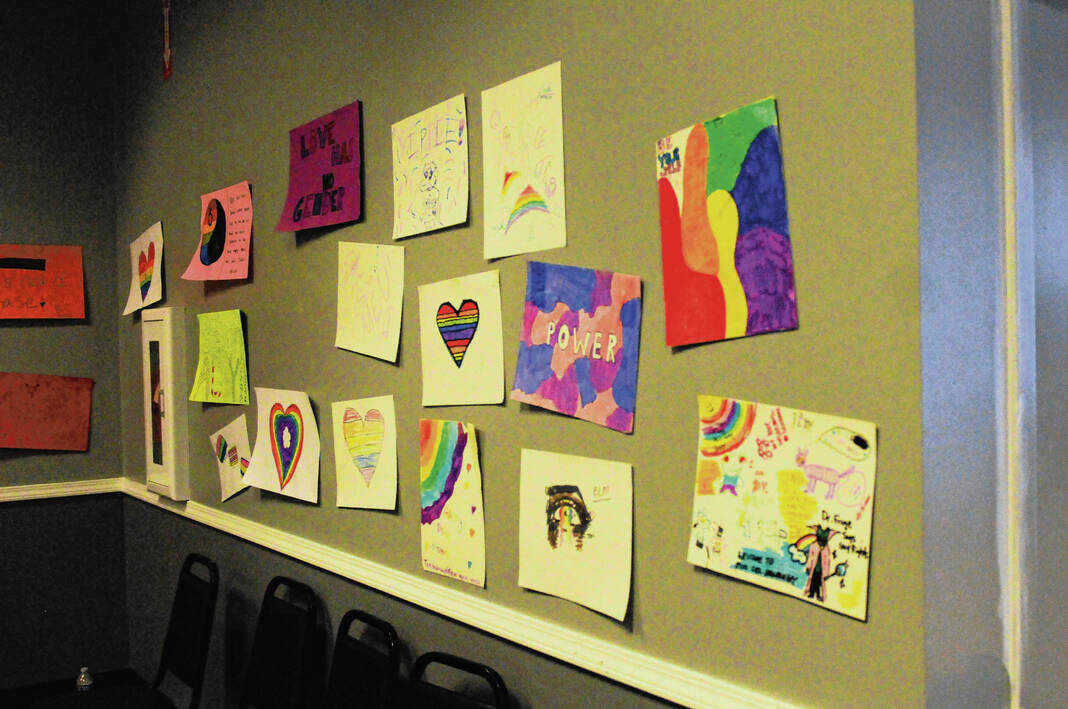
Handmade posters on display Sunday at Seymour Pride.
Jared Reedy | The Tribune
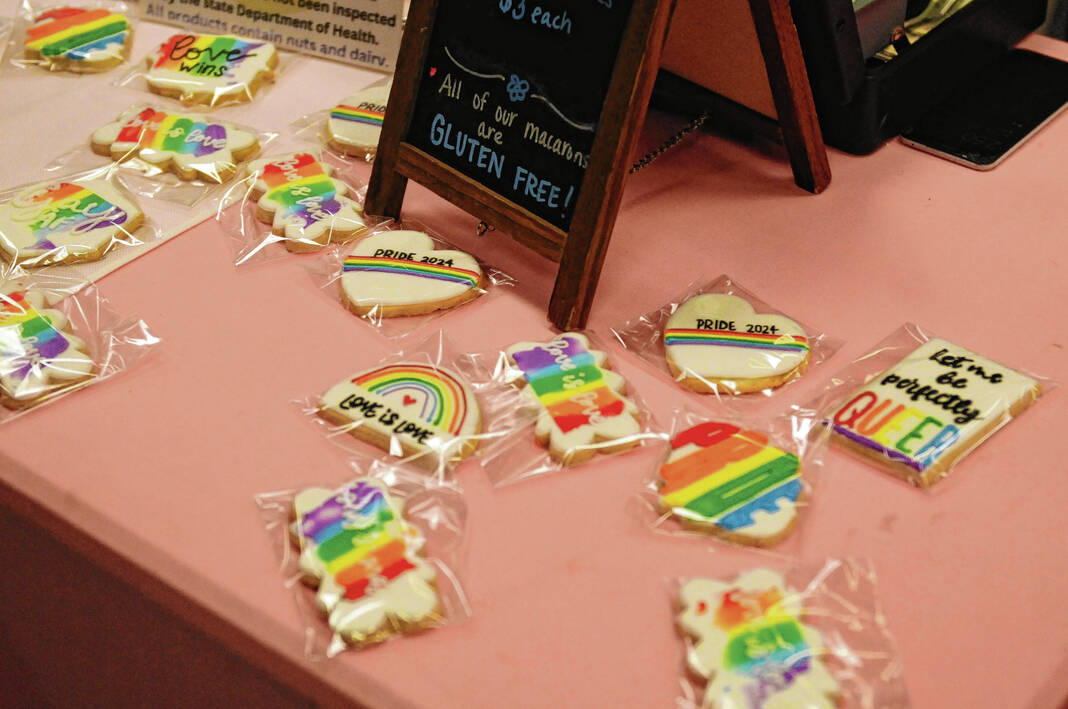
Mac Me Smile, based out of Crothersville, had Pride-themed cookies for sale Sunday at Seymour Pride.
Jared Reedy | The Tribune
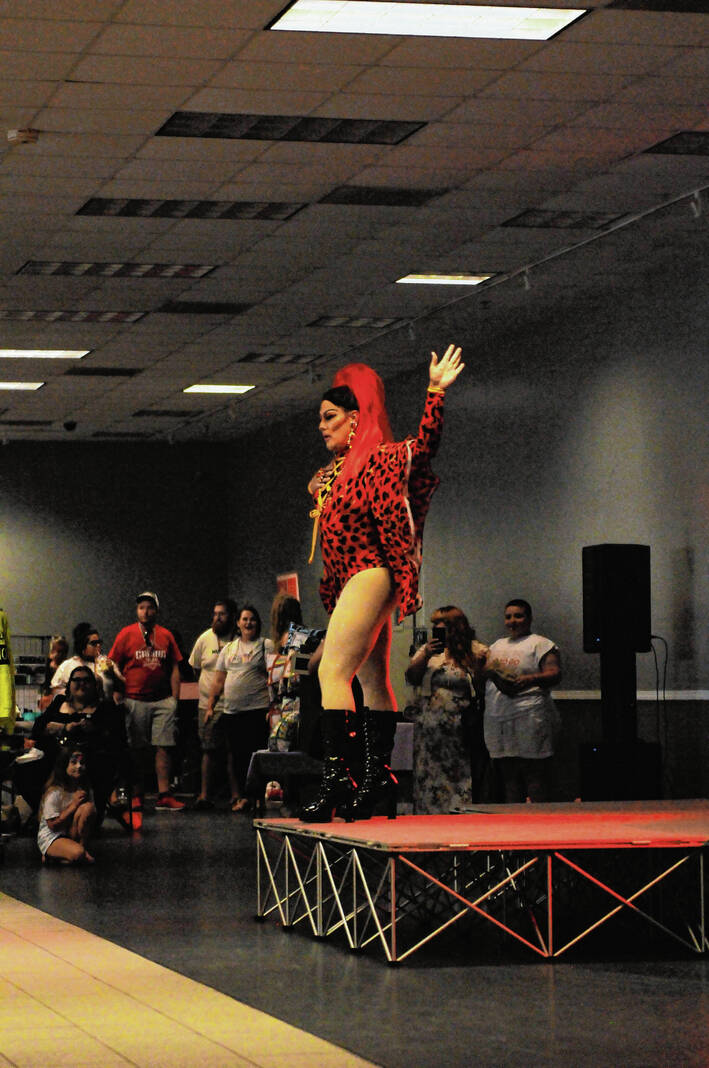
Seymour native and drag performer Lacy Rae Rain performs Kelly Clarkson’s “Catch My Breath” on Sunday at Seymour Pride.
Jared Reedy | The Tribune
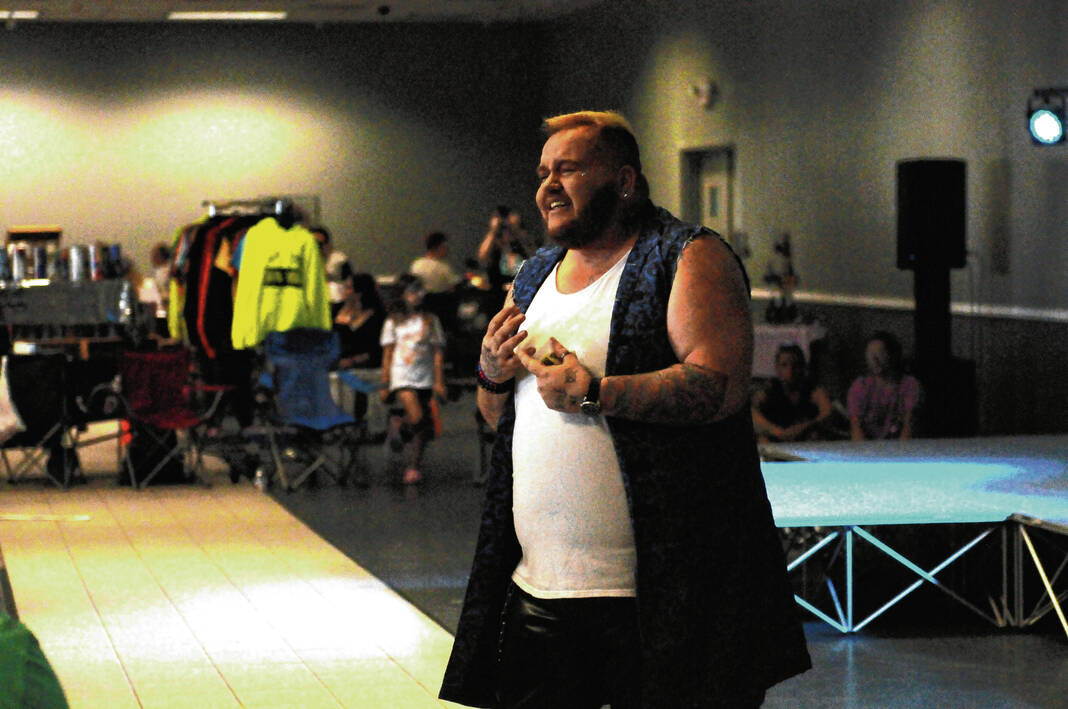
Drag performer Andie C. Havoc performs “Surface Pressure” from Walt Disney Animation’s “Encanto” on Sunday at Seymour Pride.
Jared Reedy | The Tribune
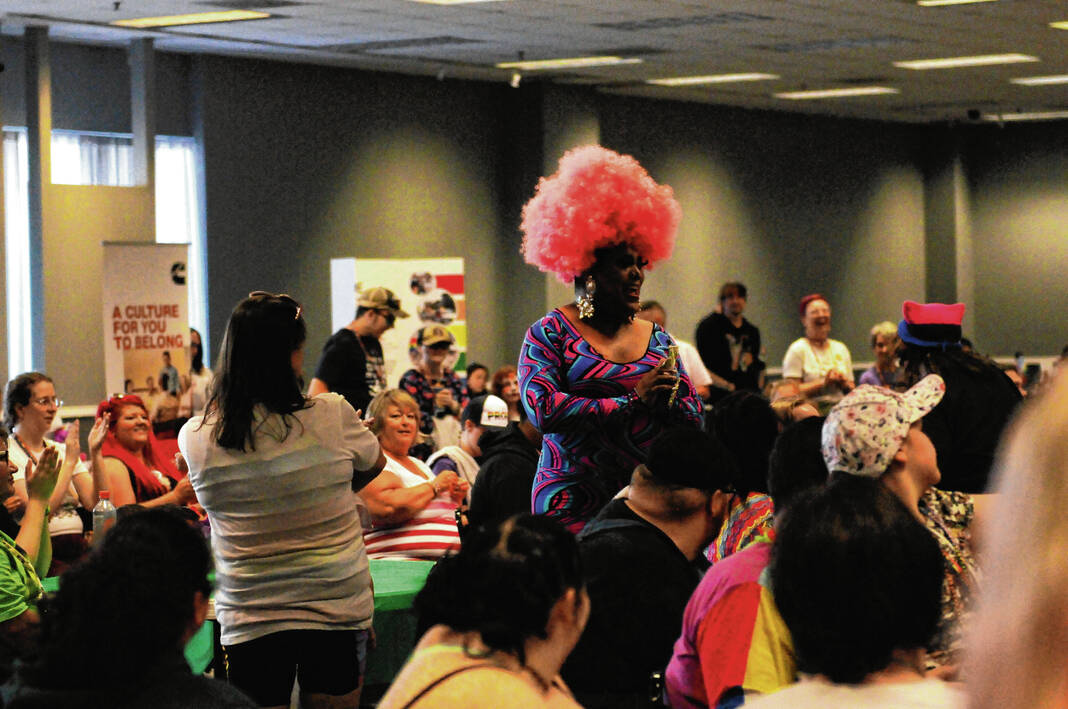
Drag performer Vivika Hart performs “I Will Survive” by Gloria Gaynor on Sunday at Seymour Pride.
Jared Reedy | The Tribune
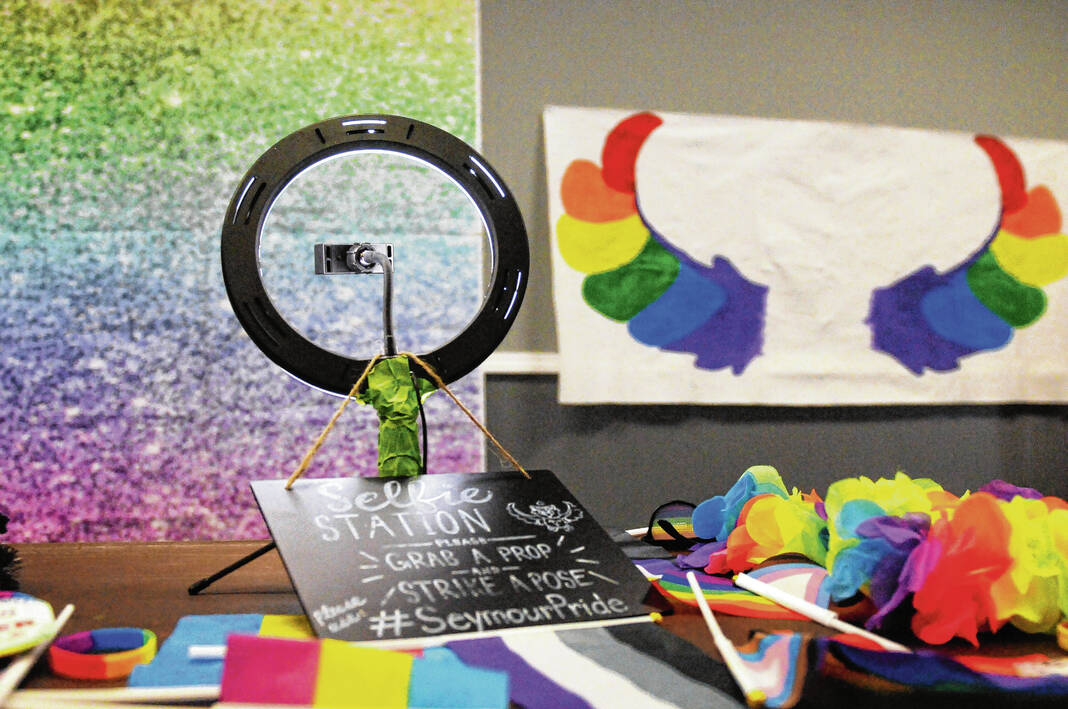
Attendees could take pictures with props and background displays at a “selfie station” Sunday at Seymour Pride.
Jared Reedy | The Tribune
“People need to know that we are not to be erased from society, that we are just like every other human being and that we are deserving of rights.”
These are the words of 69-year-old Randi Pearson of Seymour speaking on the importance of recognizing and uplifting individuals within the LGBTQIA+ community. As a transgender woman, Pearson said she likes to do everything she can to educate people on the history of the community and encourage fellow members of the community to be their authentic selves.
She was one of hundreds of LGBTQIA+ individuals and allies who gathered at Celebrations in Seymour for the Jackson County Pride Alliance’s fourth annual “Seymour Pride” event on Sunday.
According to Jon W. Davidson — senior staff attorney for the ACLU LGBTQ & HIV project — the American movement for queer rights can trace its origins to June 1969, when queer patrons of New York’s Stonewall Inn fought back against police harassment. Back then, only one state had decriminalized same-sex sexual intimacy.
In an article for the American Bar Association, Davidson wrote that in 2003 the U.S. Supreme Court “held that gay people were ‘entitled to respect for their private lives’ and that the government ‘cannot demean their existence or control their destiny by making their private sexual conduct a crime’ … Between judicial, legislative, and electoral victories, 24 states were permitting same-sex couples to wed when the Supreme Court ruled that all states must do so in Obergefell v. Hodges in 2015.”
Pride Month, which occurs annually in June to commemorate the anniversary of the Stonewall riots in New York, serves as a celebration of the perseverance of the LGBTQIA+ community despite hardships and judgement.
“Celebrating Pride, especially in a small town, is about letting every person know that they are seen for exactly who they are, that they are supported for exactly who they are … to show them that they’re loved, that it’s okay to feel like you’re different; we’re all different in our own ways and that’s what makes us special,” Katrina Ketcham-Hardwick — the director of the Jackson County Pride Alliance — said on Sunday.
LGBTQIA+ representation in film, television, literature and social media is especially important for the community, Ketcham-Hardwick said.
“Everyone accesses media in some way, and honestly — and sometimes unfortunately — that’s how [people] get their information,” Ketcham-Hardwick said. “You see what you see in your everyday life, but when you see [life] in a broader, more diverse way expanded in media, you’re seeing it in a way of like, ‘Oh, the whole world is seeing this too? I’m not alone?’”
At Seymour Pride this year, attendees had the chance to have their faces painted and to have a balloon hat or animal fashioned for them. Also, Spud Bank and GrillO’s had food trucks parked outside.
Indianapolis-based drag performer Ilana A la Mode led story time at 3:30 p.m. An illustrated biography of Harvey Milk — the first openly gay man to be elected to public office in California — brought A la Mode to tears.
“We must not forget the things we have lost and the people we have lost,” A la Mode said. “The people that we’ve lost would want us to continue to go on, all of our trans brothers and sisters who are at the forefront of the movement, all of our lesbian sisters who were taking care of the gay men who were dying of AIDs in the ’80s, they would want us to continue.”
Story time was followed by family-friendly drag performances by four drag performers: Lacy Rae Rain, Andie C. Havoc, Sierra Rain and Vivika Hart.
Rain, a Seymour native, is the current reigning Miss Trans Southwest. She is set to compete in Miss Trans USA this fall.
In the short interim between story time and drag performances, Ketchham-Hardwick took the stage to teach attendees the dance to Chappell Roan’s “HOT TO GO!”
IYG (Indiana Youth Group) was among the many services on Sunday with booths offering information for LGBTQIA+ individuals and their family and friends. Spencer Gaffney, mental health counselor, said IYG was founded in Indianapolis in 1987 and is the nation’s longest-running LGBTQIA youth center. The queer youth organization established a location in Columbus last November.
“For our 35th [anniversary], we decided to expand across the state to make sure no youth has to travel more than an hour … We serve 12 to 19 year-olds, and they can come in every Thursday and get a hot meal and be themselves,” Gaffney said. “A lot of our youth face challenges for being turned down for who they want to be, so what we do is make sure they feel supported.”
Other services with booths at Seymour Pride included Stride, Health Plus Indiana and the HIV Modernization Movement of Indiana.
On how supportive friends and family members can be better allies to the community, Ketcham-Hardwick said being an ally is about being able to say, boldly, “I love you.” She said speaking words of validation and love is a great way to show support for LGBTQIA+ individuals.
Tomas Cole, 24, said Pride Month means community to him. He also shared some advice for individuals who want to be better allies.
“A lot of allies don’t question things in their daily life,” Cole said. “My advice [to them] would be to question things every day and speak up, even if you’re not around queer people.”
An aspect of Pride history Cole said he wished more people knew about is its intersection with feminist history.
“The feminist movement has been dismantling the belief that our sex and gender should define our roles in society and has been fighting the inherent gender-based discrimination and violence resulting from that belief for more than a century … the ill-treatment of women in our societies and the ill-treatment of [the LGBTQIA+ community] have the same root cause,” Julia Ehrt, executive director of IGLA World, wrote. “It is all about sex and gender — and they should be tackled jointly.”
According to an article by Wendy Rouse for the National Park Service, “Gender-defying suffragists faced pressure to conform to heteronormative standards of beauty and behavior not only from their critics, but also from inside the suffrage movement … Partners of [queer] suffragists were often relegated to the status of ‘close friend’ or, worse yet, entirely written out of the biographies all together. This has led to an erasure of queer history.”
In 1971, decades after the women’s suffrage movement, the National Organization for Women (NOW) expanded its policies to include lesbian rights, as stated on NOW’s website.
Quen Warren, also 24, said the mental health of LGBTQIA+ individuals should have more focus.
“I think it’s becoming more well known now, but a lot of [LGBTQIA+] people struggle with mental health issues like depression and anxiety,” Warren said.
The overwhelming show of support at this year’s Pride event in Seymour from people of all ages, races and identities gives Ketchham-Hardwick hope for the future of the LGBTQIA+ community.
“We’re all here to say, ‘You’re human, you’re loved, you’re seen,’” Ketchham-Hardwick said. “People are able to come here and feel like they have other people around them who know what they’ve gone through … The fact that we can do openly that now, and so many people are here accessing it — whether they are allies or a part of the community — I know that [support] is going to keep increasing.”
